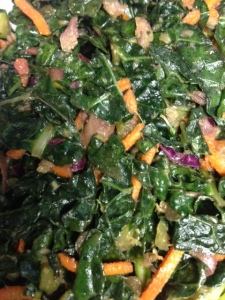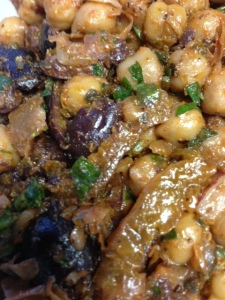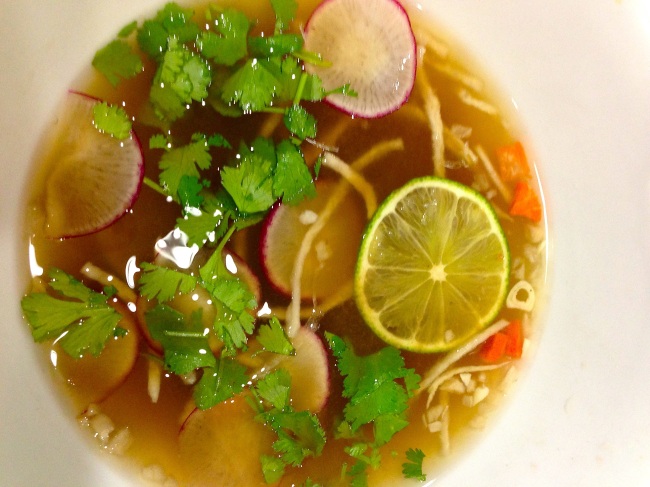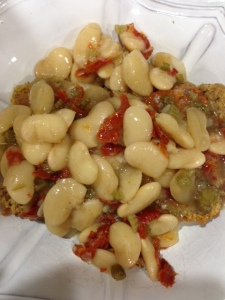 In a fascinating study published today, Gary Lupyan of University of Wisconsin revealed the deep and profound link between language, specifically word choice, and the influence on our sight, and likely smell and taste.
In a fascinating study published today, Gary Lupyan of University of Wisconsin revealed the deep and profound link between language, specifically word choice, and the influence on our sight, and likely smell and taste.
It’s got me thinking about how distracted we usually are when we eat. Most of us have a pretty incessant inner dialogue going. And often the words that we use are not positive ones. We frequently bolt down our food as if we were late for a train, without any pleasure or enjoyment. Taste, aroma, and texture don’t even register because we’re so busy being distracted by our own thoughts.
If the only thought in our mind about food is the term “fuel”, we are disconnecting ourselves from the exquisite pleasures of, for example, stuffed squash blossoms, polenta, and cassoulet.
Further, if we consider food to be the enemy, something that exists just to torment us and make us fat, those word-based thoughts are going to influence all aspects of metabolism, and we will not be nourished. The influence of stress around food on metabolism is well documented in the book “The Slow Down Diet” by author Mark David.
But today’s study puts an even finer point on the importance of words on our ability to see, smell and taste the things that are right in front of us. It appears that the words we use condition the brain to either accept sensory input or reject it. Think of how powerful that is.
Language literally shapes our reality and informs our senses.
This study also made me think about the type of language that we use about ourselves and others that radically influences the way we see people. The words that we use to describe ourselves, our body, and others would also affect our sensory input.
Rather than focusing on the beauty, dignity, and functionality of the human body that shows up for us every single day so that we can carry out our life, instead, we think jiggle, wiggle, wobble, dimple, gravity, dissatisfaction, and loathing. The airbrushed society in which we live has convinced us that only perfection is acceptable, and since we’re not perfect, we therefore have reasons to be disgusted with ourselves, even abandon ourselves. Our inner dialogue is worded accordingly.
Lupyan’s work revealed that hearing a word that did not match the image the participants were actually shown hurt the subjects chances of seeing the object. It literally interrupted sight so thoroughly that there were no signals to the brain suggesting the objects that they were being shown. http://www.eurekalert.org/pub_releases/2013-08/uow-lcr082613.php
The take away here is to become more aware of the language that we are using, our inner dialogue, and how it affects quality-of-life and our ability to be nourished in every way. Slowing down when we eat, blessing our food, asking that we be nourished by its goodness, and thinking of specific descriptive words that apply to its subtleties will all help us be more nourished. Thinking of our miraculous body with compassion and gratitude will help us back away from an adversarial relationship with self. Watchfulness for language that fosters judgemental or prejudicial attitudes toward self or others will allow us to pause on the spot and remember that that is not who we are, as our best self, and re-word the message into something that reflects respect and compassion.








